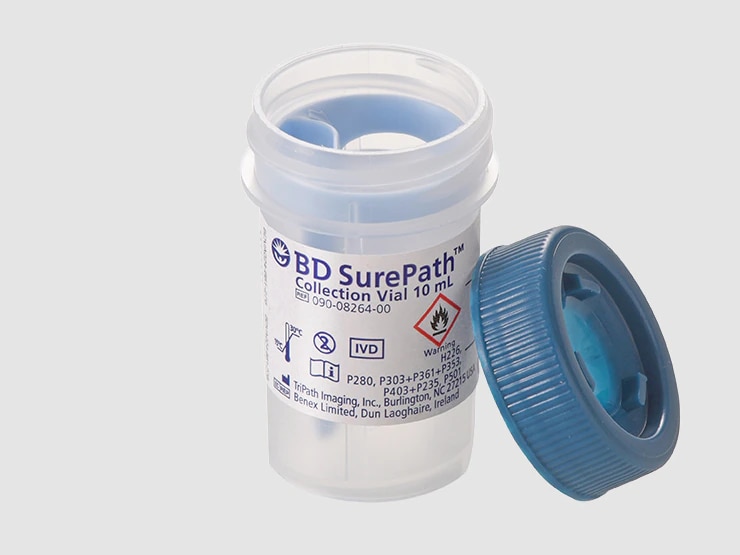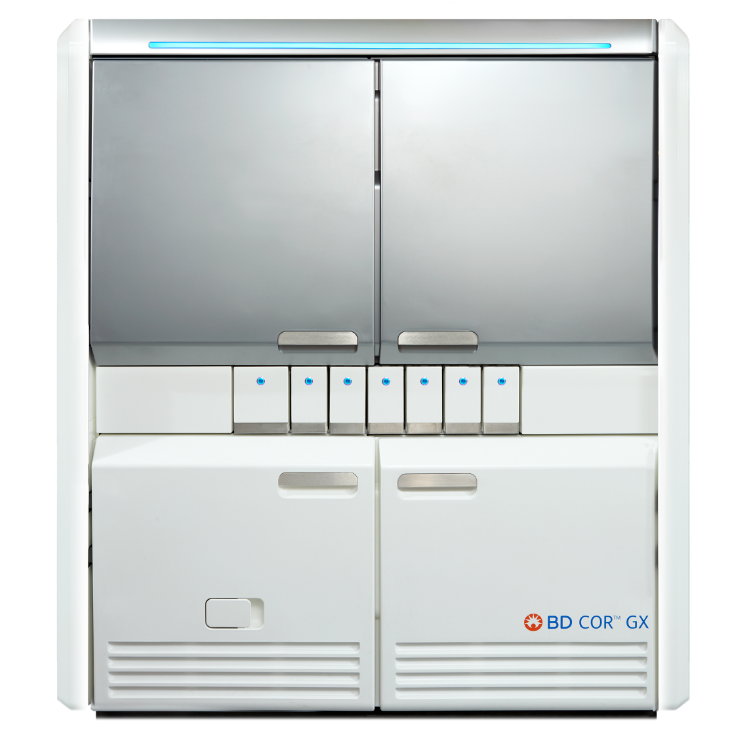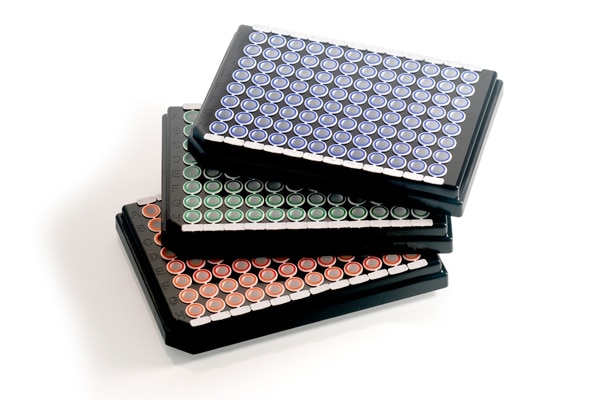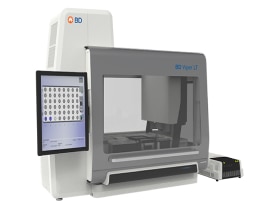BD SurePath™
Our BD SurePath™ brand defines a liquid-based Pap test that improves disease detection.


- Overview
The BD SurePath™ brand includes a liquid-based Pap test that is intended for use in the screening and detection of cervical cancer, precancerous lesions and atypical cells.1 This process is a unique, proprietary cell enrichment process that eliminates nondiagnostically relevant cells and interfering substances for a clearer, easier-to-read slide.
The BD SurePath™ Pap test standardizes collection and ensures 100% of the collected sample is sent to the laboratory for processing. No diagnostic cells are discarded in the clinic, unlike those with "rinse and swish" systems, which on average can result in the loss of 37% of the collected sample during cell transfer.
Helps detect disease with a more quality and easily read sample than possible with conventional Pap smears and other liquid-based cytology (LBC) tests. The BD SurePath™ test is shown to:
- Increase HSIL+ detection by 64.4% compared to the conventional Pap smear2
- Significantly reduce unsatisfactory results vs other screening methods3
- Better tolerate samples with potentially interfering substances such as blood, mucous and inflammatory cells4
- BD PrepStain™ slide processor: direct-to-vial study population [product insert]. Franklin Lakes, NJ: Becton, Dickinson and Company; 2016.
- Fremont-Smith M, Marino J, Griffin B, Spencer L, Bolick D. Comparison of the Surepath™ liquid-based Papanicolaou smear with the conventional Papanicolaou smear in a multisite direct-to-vial study. Cancer. 102:269-279.
- Nygård JF, Sauer T, Nygård M, Skare GB, Thoresen S Ø. CIN 2/3 and cervical cancer in an organised screening programme after an unsatisfactory or a normal Pap smear: a seven-year prospective study of the Norwegian population-based screening programme. J Med Screen. 2004;11(2):70-76.
- Nance KV. Evolution of Pap testing at a community hospital: a ten year experience. Diagn Cytopathol. 2007:35(3):148-153.



